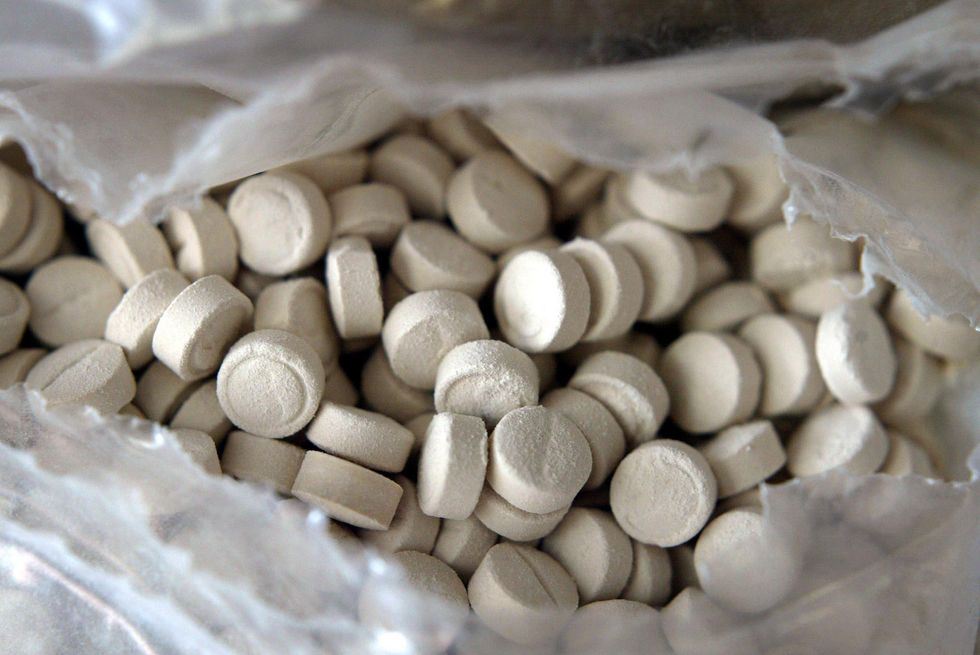ONS: Drug-related deaths in England and Wales highest for 8th year in a row

Paul Faith

ONS figures today have revealed drug-related deaths in England and Wales have risen for the eighth year in a row.
They remain at their highest level in more than a quarter of a century, figures show. It is the ninth consecutive annual rise Some 777 deaths involved cocaine – a 9.7% rise from 2019 and more than five times higher than the 144 cocaine-related deaths registered in 2010.
PA Graphics
This is the highest number since records began in 1993, and up 3.8% from the previous year.
There were 4,561 deaths related to drug poisoning registered in England and Wales in 2020, the Office for National Statistics (ONS) said.
The ONS figures cover fatal accidents, suicides and complications involving controlled and non-controlled drugs, prescription and over-the-counter medications.
They show that rates of drug-related deaths have risen by 60.9% in the past 10 years – from 49.4 deaths per million in 2010 to 79.5 deaths per million in 2020.
Of the deaths registered last year, almost a fifth were due to accidental poisoning (861), followed by mental and behavioural disorders as a result of drug use (705).
There were 500 instances of intentional self-poisoning.
Two thirds (2,996) were related to drug misuse, and around half (2,263) involved an opiate.
Dr Emily Finch, vice-chair of the addictions faculty at the Royal College of Psychiatrists, said: “Years of cuts have left addictions services ill-equipped to treat people and prevent these deaths from rising.
“The Government needs to wake up to the fact that cuts to services, disconnecting NHS mental health services from addiction services and shifting the focus away from harm reduction to abstinence-based recovery is destroying lives and fuelling the increase in drug-related deaths.”
Responding to the figures, support groups said the rise constitutes a public health emergency and called for the Government to “wake up” following years of cuts to addiction services.
Due to death registration delays, around half of the deaths will have occurred in the previous year and the majority before the coronavirus pandemic, the ONS said.
It is the ninth consecutive annual rise in deaths linked to cocaine use.
Males accounted for more than two thirds of the registered deaths (3,108).
The ONS figures show a north-south divide in rates of deaths due to drug misuse.
Julien Behal
The North East experienced the highest rate – 104.6 deaths per million – three times higher than the lowest rate, which was in London: 33.1 deaths per million.
Wales recorded its lowest rate since 2014 – 51.1 deaths per million – which was an annual fall of 9.1%. The ONS said death registration delays could be affecting the figures.
The rates of drug related deaths for males and females in the most deprived areas of England were around five-and-a-half times higher than those in the least deprived parts.
The highest rate of drug misuse deaths was found in those aged 45 to 49, followed by those aged 40 to 44.
So-called Generation X, born in the 1970s, has consistently had the highest rates in the past quarter of a century.
The ONS said possible explanations for the rise could be that there is an ageing cohort of drug users experiencing the effects of long-term use and becoming more susceptible to a fatal overdose.
Eytan Alexander
We’re living in a parallel pandemic; a drug, alcohol and mental health pandemic that has only worsened due to the virus.
And new trends involving taking specific drugs, such as benzodiazepines, alongside heroin and morphine may increase the overdose risk.
The figures follow a landmark review by Dame Carol Black, which set out 30 recommendations to Government to help overcome drug harm and called for significant investment in England’s treatment and recovery system.
The Government has said it will set up a new drugs unit to help end illegal drug-related illness and deaths, and has launched a consultation to improve access to naloxone, which helps reverse the effects of opioid overdose.
Eytan Alexander, a recovering addict and chief executive of the UK Addiction Treatment Group, said the rise is “saddening but unsurprising”.
He said: “We’re living in a parallel pandemic; a drug, alcohol and mental health pandemic that has only worsened due to the virus.We’re living in a parallel pandemic; a drug, alcohol and mental health pandemic that has only worsened due to the virus.
“Enough is enough now, we need to come together as a society and take real action to help vulnerable people before more people lose their lives.”
Jon Murray, executive director of services in England at the charity With You, said it is no surprise that deaths were highest in the most deprived areas.
He said: “Issues such as rising homelessness, poor mental health and a lack of economic opportunities all lead to people using drugs, and for many, these challenges have become worse due to the pandemic.”
Mark Moody, chief executive of the charity Change Grow Live, added: “For things to improve, we must directly challenge the stigma faced by people who use drugs.
A Government spokesman called every drug-related death a tragedy, adding: “We are already investing £148 million to tackle the root causes of drug misuse, including £80 million for treatment and recovery – the largest investment in the drug treatment system for 15 years.